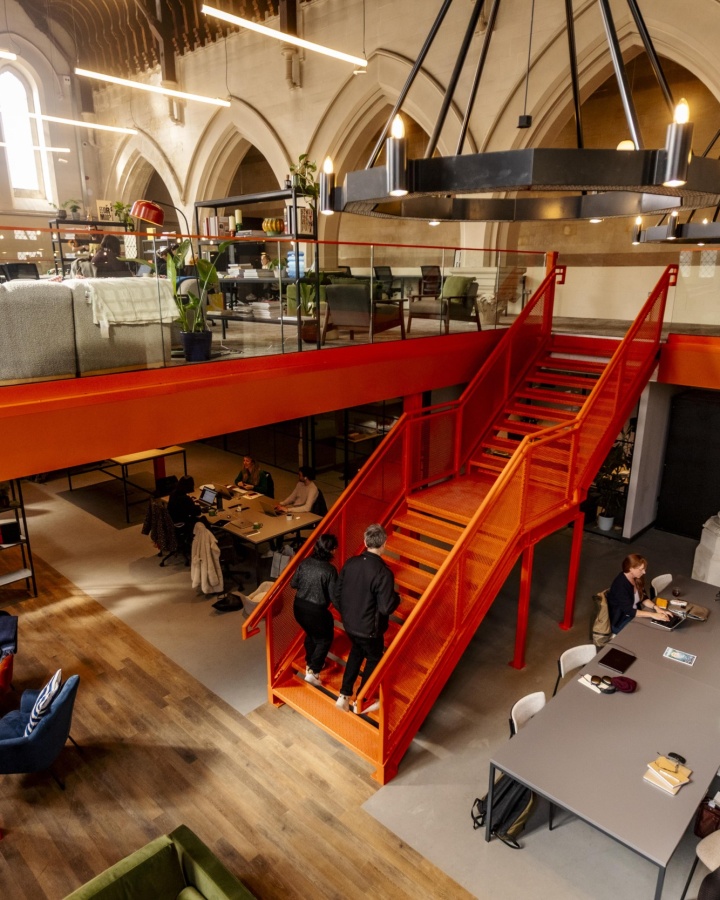
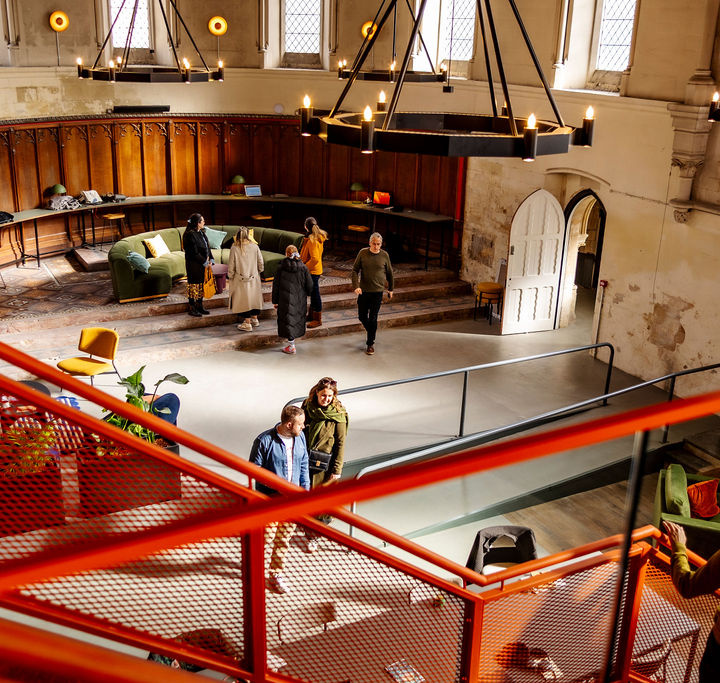
Centre • Bath
Breakfast
Talks
Socials
Run Club
Crafts
Music Events
Summer Party
For Hire
Breakfast
Talks
Socials
Run Club
Crafts
Music Events
Summer Party
For Hire
Breakfast
Talks
Socials
Run Club
Crafts
Music Events
Summer Party
For Hire
Breakfast
Talks
Socials
Run Club
Crafts
Music Events
Summer Party
For Hire
Breakfast
Talks
Socials
Run Club
Crafts
Music Events
Summer Party
For Hire
Breakfast
Talks
Socials
Run Club
Crafts
Music Events
Summer Party
For Hire
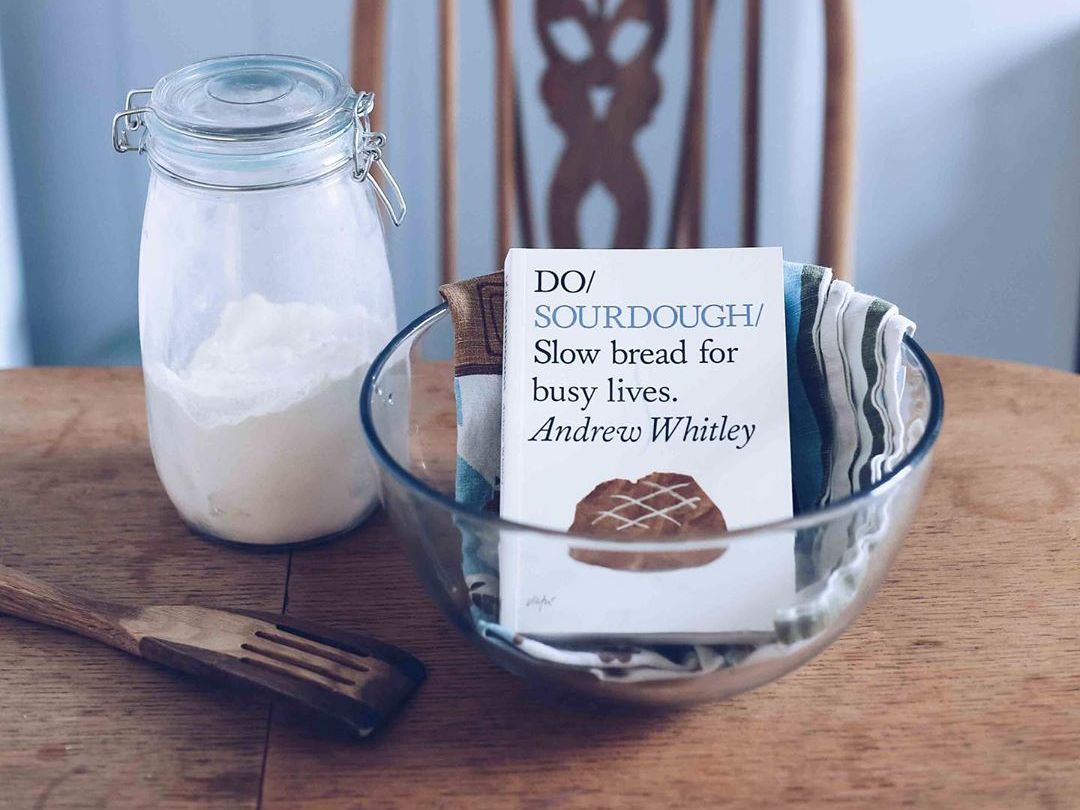
In the fourth and final instalment of our DO Something New series – a collection of journal posts inspired by the zest for home crafts cultivated in our community during the Covid-19 lockdown – we spoke to baker and DO/Sourdough author Andrew Whitley.
If there’s one thing Andrew knows a thing or two about, its bread. For four decades, he has been sharing his belief that bread, being so much more than a humble loaf, can guide us to a healthier and fairer world. In 1976, he opened The Old Village Bakery in Melmerby, in the Lake District, which over the next 20 years became one of the country’s leading organic bakeries. His seminal bestselling book, Bread Matters (Fourth Estate, 2006) sought to rally the nation in a home baking battle against the poor state of mass-produced British bread, while his bread-baking courses are some of the most popular among aspiring bakers across the country. Now, he is the Executive Chairman of Scotland The Bread, a social enterprise with nutrition, sustainability and food sovereignty at its heart. We spoke to him about the significance of sourdough in lockdown and the far-reaching benefits of bread baking.
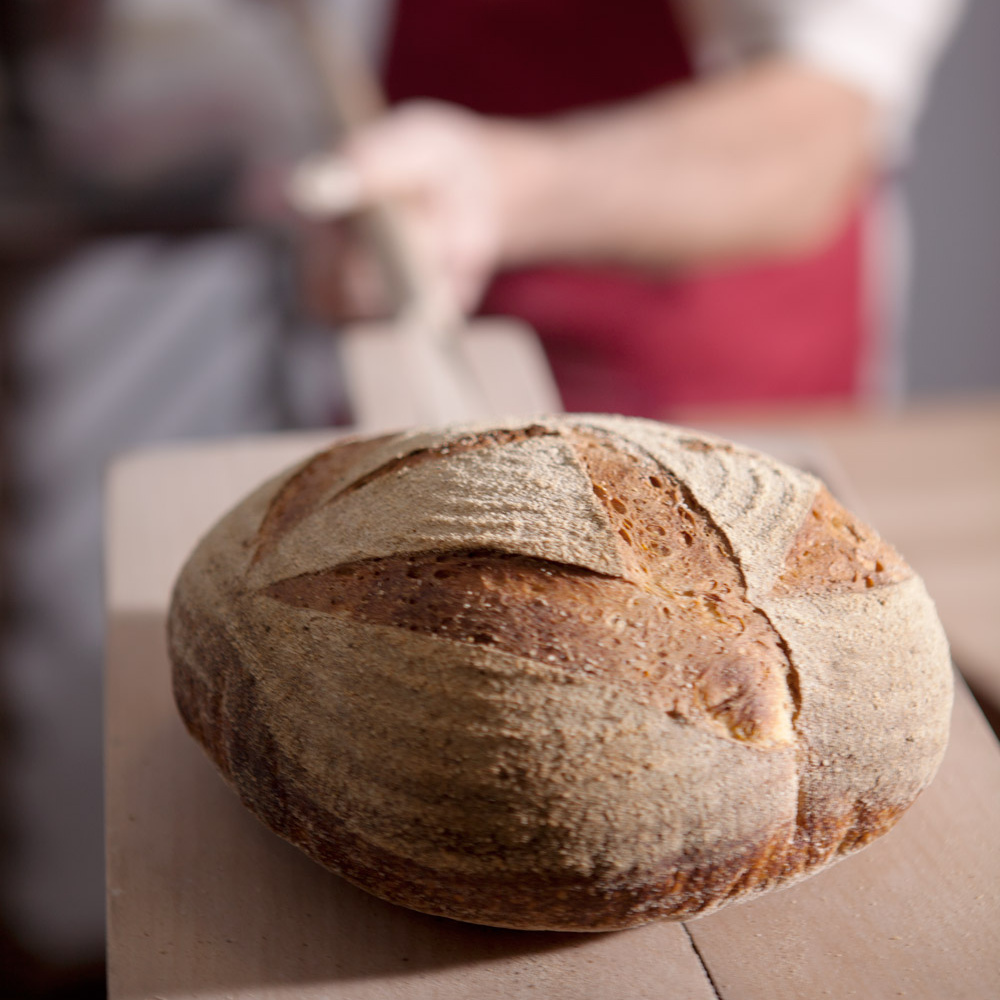
What led you to write a guide about baking sourdough?
I had devoted a chapter to Sourdough in my first book, Bread Matters, and noticed an increasing interest among participants in my bread making courses. But many people feel sourdough is complicated and time-consuming (an impression not always dispelled by some of the trendier baking books). So when Miranda started The DO Book Co and asked me to write something short and action-oriented based on my original 2008 DO Lecture, I set about demystifying sourdough. Since forty years have passed from when I started my Village Bakery in Cumbria, I felt I had enough experience to show how slow bread could fit well into busy lives.
Andrew, you’re a baker on a mission ‘to change the way we think about bread’. What did you do during isolation – has it changed your outlook?
I was overwhelmed with orders for my Bread Matters Sourdough Starters which I make by hand at home, so I was kept very busy. I was fortunate to be joined in lockdown by three of my children and three grandchildren who left London just in time. I was in the middle of selling my house in the Scottish borders and moving to the Scotland The Bread HQ in Fife, and having family help was wonderful. Aside from my personal good fortune, through my work as chair at Scotland The Bread, I became aware of a sudden spike in the crisis of food injustice which we are trying to address by getting more nutritious local grain and bread to where it’s most needed. We were successful in getting some emergency grant aid from Innovate UK to run our Flour to the People project, which is doing what it says on the tin.
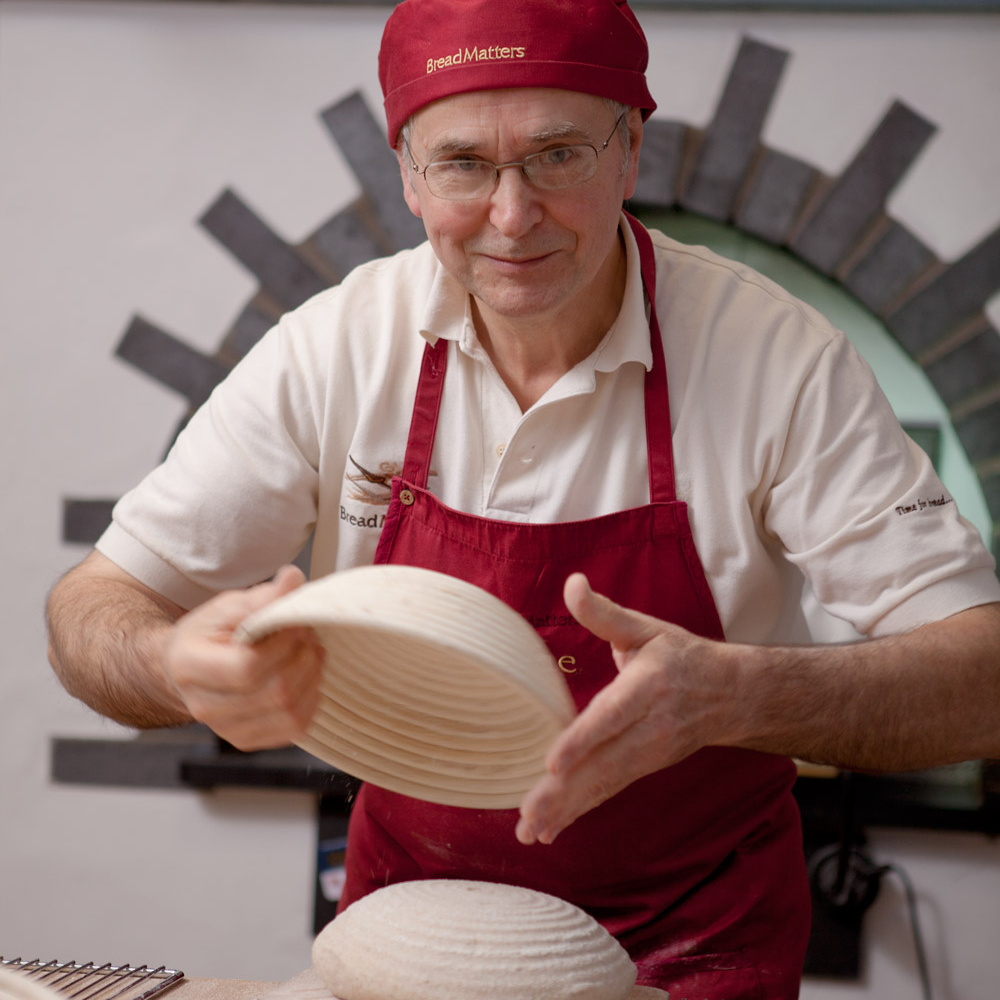
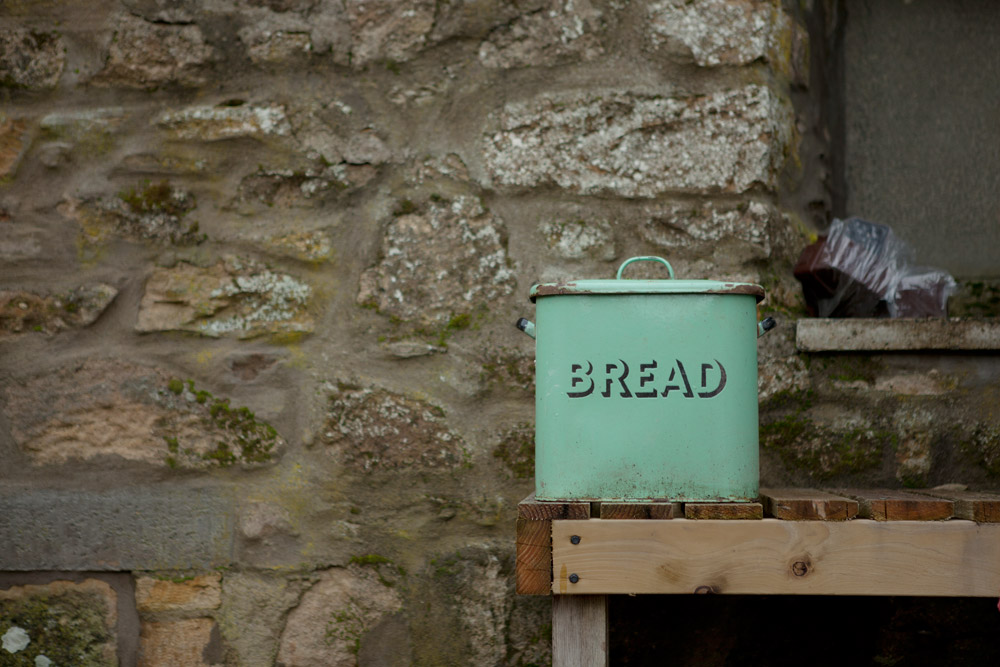
What are your top three tips for newly-initiated sourdough bakers?
1. Be patient – remember you are working alongside microorganisms which take time to work well and it’s best to think of them as collaborators, not slaves. If they don’t appear to be working, it may be because you haven’t created quite the right conditions for them.
2. Be observant – practise seeing dough differently, enjoying its gradual evolution into bread, and make mental notes of the effect of any changes you make (of flour, water content, temperature and starter percentage).
3. Enjoy the process as you learn, even if the first results are less than Instagrammable. The late great agroforester and grain researcher Martin Wolfe (of Wakelyn’s Farm in Suffolk) used to say, “there’s no such thing as a failed experiment” – because you always learn something. You can’t be ashamed of your first loaves any more than you would be of your young children. Enjoy them – and please don’t use any recipe that tells you to throw away sourdough as part of the process. It’s both a waste and poor baking advice.
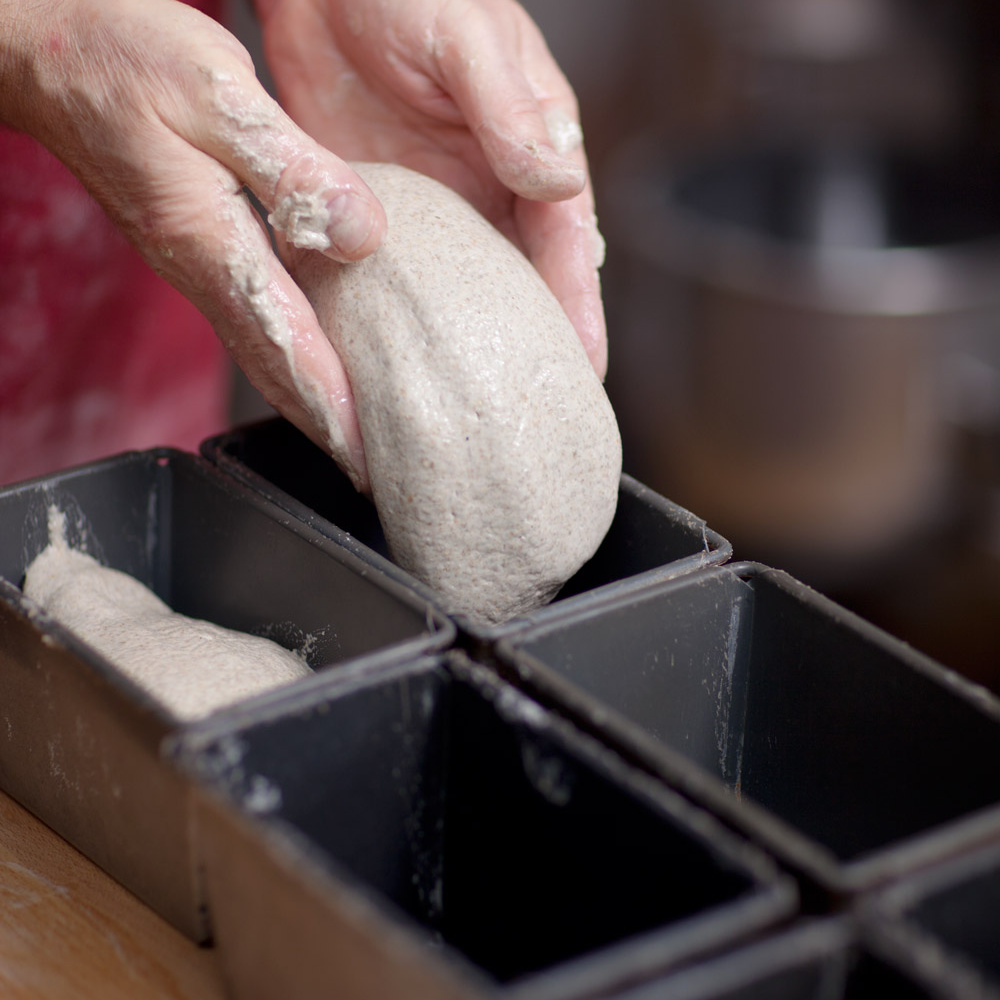
Before the pandemic, being busy was the mark of social influence and status. How can sourdough-baking encourage us to slow down?
Of course, for many people being busy is exactly the opposite, i.e. a mark of desperate attempts to survive (financially and mentally) when you have little or no control over what is making you too busy for comfort. Sourdough itself can’t remove injustice and structures which oppress. But facilitating (not ‘controlling’) the slow fermentation which defines sourdough, even as we squeeze it in between pressing commitments, has a way of drawing us in, of fascinating us enough to learn more. As we eat the delicious results, perhaps our newly-enlivened gut-brain axis sends messages which both calm our anxieties and encourage us to think differently about ‘productivity’ and ‘efficiency’.
Looking forward, how can humble bread ‘inspire ideas, change and doing’ and support our wellbeing?
You have to start somewhere, whether the aim is to lose weight, save money or change the world for the better. Making your own sourdough bread – something countless millions of supposedly innumerate and illiterate people have done for millennia – is a simple and powerful act. You get better loaves to eat and, both actually and symbolically, you begin to exert a little control over your life. And I don’t think it’s too fanciful to hope and imagine that a world in which health and mutuality are everyone’s right might seem more possible (and more necessary) with each mouthful.

Whether you caught the sourdough baking bug in lockdown, or you’re only just getting started – DO/Sourdough is your handy kitchen companion. With clear guidance on creating the all-important sourdough starter, to tools, tips and recipes, this book has everything you need to know to make healthy, nutritious bread. It’s available alongside other titles designed to inspire action at The DO Book Co, and you can relish 10% off your selection with our exclusive code. Just enter GATHER10 at the checkout. For further bread matters, you can follow Andrew on Twitter @breadmatters.
–
In our forced isolation, our social and professional obligations were replaced with new rituals of cooking, foraging, preserving, gardening, designing, creating and making. These centuries-old practices offered us a sense of purpose, and even defiance, in quarantine. As we’ve inched out of lockdown, we’ve been indulging in Q&A’s with four DO Book authors, in order to DO Something New, and benefit from this time investment in our wellbeing.
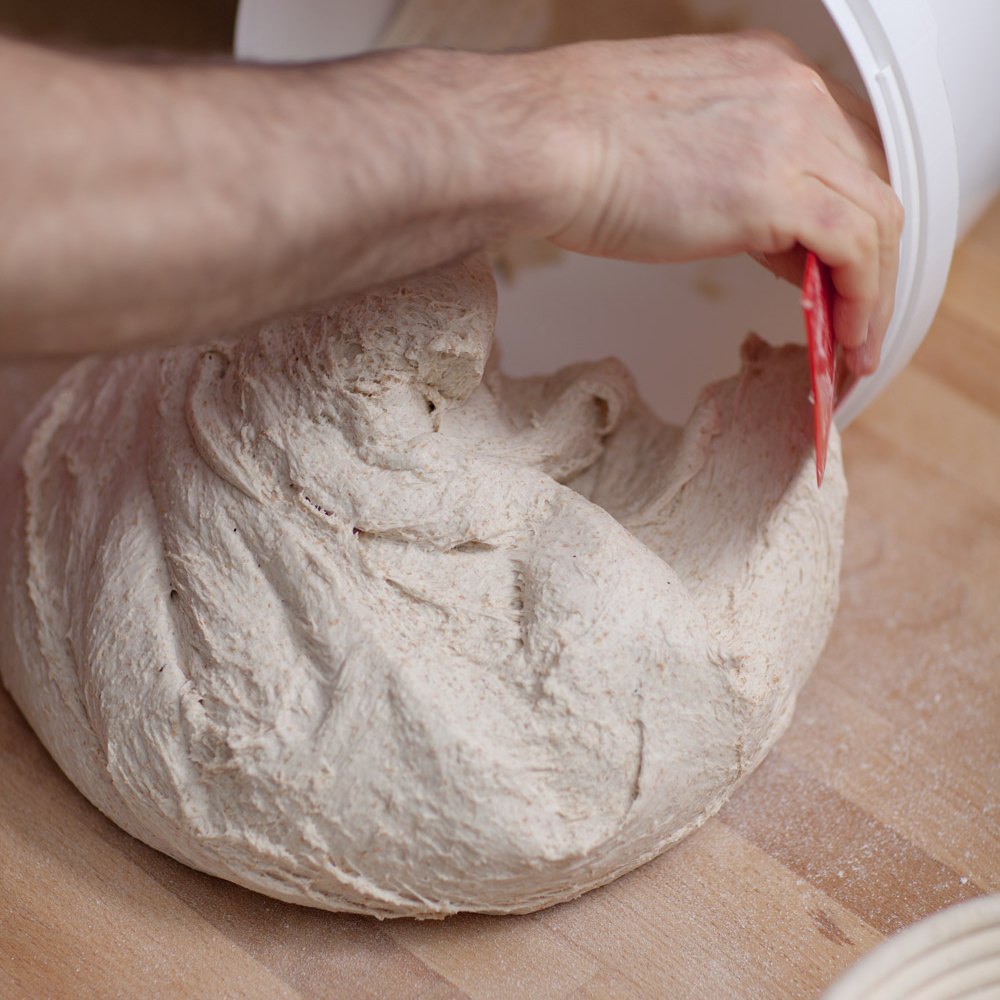
Interested in joining our creative community? Book a tour in with one of our community managers, we’d love to show you around.
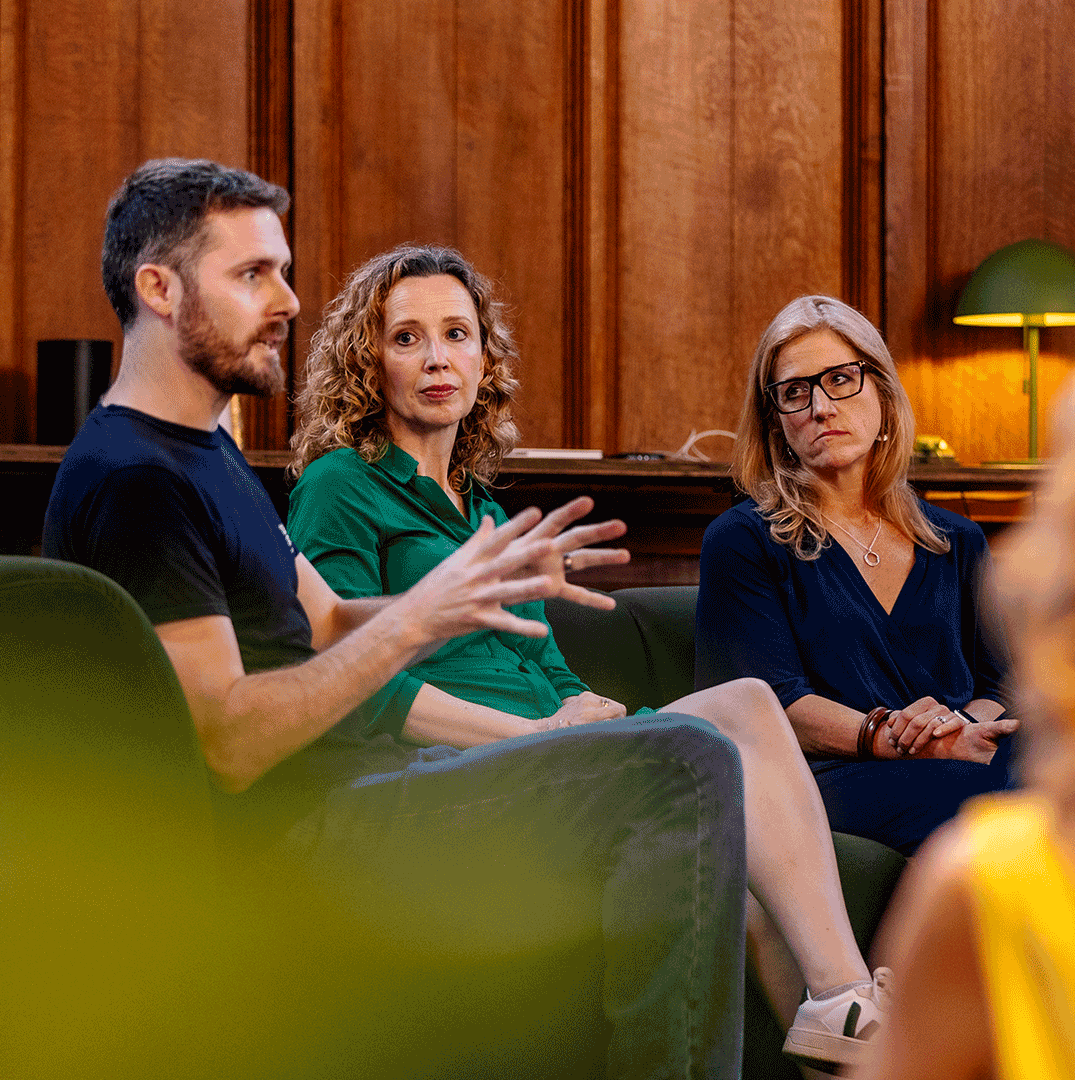
Our unique and varied spaces in Bristol and Bath cater for keynotes, networking, workshops, rehearsals and much more.
Find out more
Your specialist delivery avian is now in transit. We’ll be in touch when he reaches us.